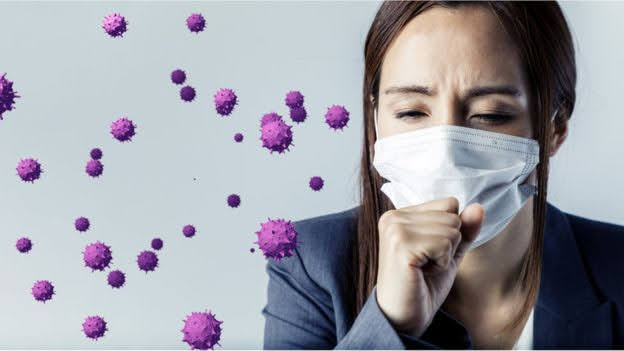
Although coronavirus was first reported in December last year, the world has yet to cope with the epidemic of the virus and the resulting disease Covid-19.
The disease is not terrible for most people, but many die from the disease.
How does the virus attack the body, why does it occur, or why do some people die from this disease?
'Incubation'
During this time the virus gradually established itself.
The virus works by taking control of the cells that make up your body.
The coronavirus, officially SARS-COV-2, can enter your body with your breath (if someone nearby sneezes or coughs) or puts your hand in your mouth after touching an infected area.
Initially it strikes your throat, trachea and lung cells and builds corona factories in those places. Later new viruses spread to different parts of the body and infect more cells.
You will not get sick during this time and some people may not have any symptoms at all.
The incubation period - the time between the first infection and the onset of symptoms - is the same for each person, but on average five days.
Innocent disease
In the experience of most people, coronavirus would seem to be an innocent disease.
Covid-19 is a harmless infection for eight out of ten people and its main symptoms are cough and fever.
There may be body aches, sore throats and headaches, but there is no such thing.
The body's immune system reacts to a viral infection and develops a fever.
The immune system identifies the virus as a hostile virus and sends a chemical called cytokines to the rest of the body to show that something is wrong.
This causes symptoms like pain and fever in the body.
Dry cough is primarily caused by coronavirus. Dry cough is most likely caused by discomfort caused by the cells becoming infected with the virus.
However, many people will start coughing up sputum or phlegm at some stage, which will also include dead lung cells under the influence of the virus.
If such symptoms occur, full rest, drinking plenty of fluids and paracetamol are advised. If such symptoms occur, there is no need to consult a hospital or a specialist.
This step lasts about a week. Most people recover within this step because their body's immune system fights the virus and resists it.
However, some people have developed a more harmful version of Kovid-19.
New research into the disease suggests that people at this stage of the disease may also catch a cold.
Terrible disorder
If the disease persists after this stage, it will be because the body's immune system is overly responsive to the virus.
The chemicals that send messages to the body then react to inflammation in different parts of the body.
Nathalie McDermott, a doctor at King's College London, said: "The virus upsets the immune system. The body begins to swell excessively. We still don't know for sure how it happens."
Inflammation of the lungs is called pneumonia.
 |
| Coronavirus-infected lung scans |
If it could enter through your mouth and pass through the airways into the small tubes of the lungs, you would eventually end up in a tiny air sac.
These sacs carry oxygen to the blood and carbon dioxide. But in the case of pneumonia these tiny sacs begin to fill with water and as a result create symptoms like difficulty in breathing, breathing problems.
Some people also need a ventilator to breathe.
According to data from China, 14% of people are infected at this stage.
Very complex disease
So far it is estimated that about 8% of people with coronary heart disease have advanced complications.
At this stage the body is unable to carry out normal activities and a high probability of death is created.
The main problem is that at this stage the immune system starts to get out of control and causes various damage all over the body.
When blood pressure drops drastically, the affected person may get septic shock at this stage, and even his limbs may stop working.
Symptoms of acute respiratory problems include inflammation of the lungs, as there is not enough oxygen to keep the body hydrated. This can cause the kidneys to stop purifying the blood and damage the intestinal walls.
Dr. Bharat Pankhania said, "The virus causes inflammation on such a large scale that the whole body breaks down, causing multiple organs to fail simultaneously."
At this stage, if the body's immune system does not cope with the virus, it can spread to other parts of the body and create the possibility of greater damage.
ECMO or extra-corporeal membrane oxygenation may be used to treat the patient at this stage.
 |
| One patient is being treated with ECMO machine |
In this method, blood is taken out of the body through a tube by an artificial lung and the blood is oxygenated and re-injected into the body.
However, when the level of damage is high, sometimes the organs are not able to keep the body alive.
The first death
Doctors said that despite their best efforts, many deaths have occurred.
The first two to die at Jinintan Hospital in Wuhan, China, were apparently healthy people, although they had both been smokers for a long time.
The first person to die, a 71-year-old man, had severe pneumonia when he was hospitalized.
He had trouble breathing, and even when placed on a ventilator, his lungs became paralyzed and his heart stopped beating.
The man died after 11 days in hospital.
The second man, who died at the age of 69, also had severe respiratory problems.
He was also given the help of an ECMO machine, but it was not possible to save him. He died of acute pneumonia and septic shock after his blood pressure dropped.









0 Comments